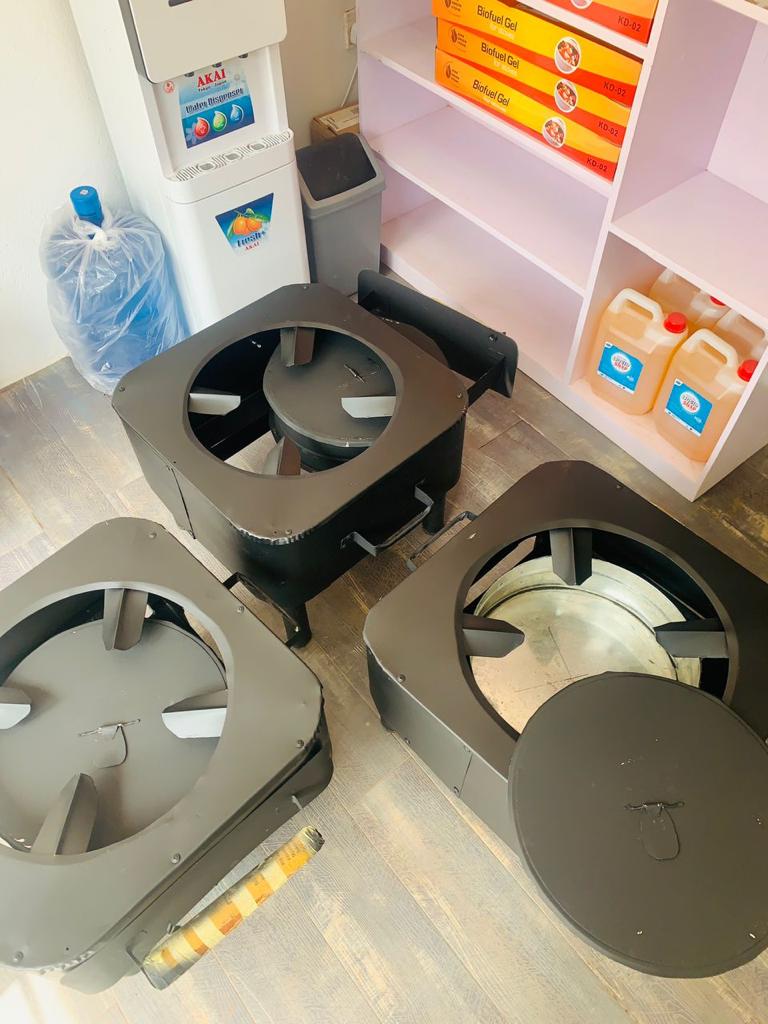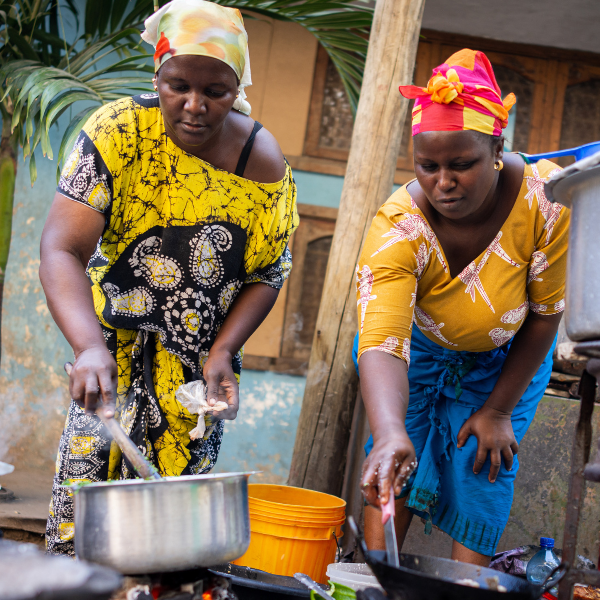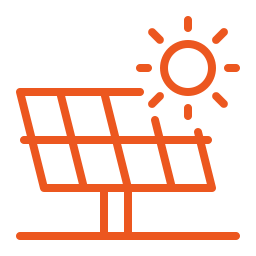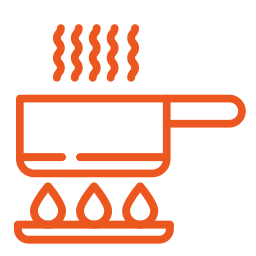Ghana Living Lab


Living lab description
The Ghana Living Lab, situated at Akenten Appiah-Menka University of Skills Training and Entrepreneurial Development (AAMUSTED) in Kumasi, Ghana, plays a crucial role in the SESA project.
Established in 2020, AAMUSTED is Ghana’s leading Technical and Vocational Education and Training (TVET) institution, dedicated to fostering skilled manpower and promoting entrepreneurship education. The Living Lab at AAMUSTED is strategically located within Kumasi, Ghana’s second-largest city, aligning with the university’s mission to provide higher education in technical, vocational, and entrepreneurial training. The university’s objectives include job creation for economic development, equipping teachers with the necessary skills for technical and vocational education, and fostering strong ties between the university and industry or the community.
The Living Lab serves as a practical hub for the SESA project, allowing students, educators, and the community to engage in hands-on experiences related to sustainable energy solutions. By leveraging AAMUSTED’s emphasis on holistic training and industry collaboration, the Ghana Living Lab empowers individuals to contribute to the development of sustainable practices, aligning with the broader goals of the university and the SESA initiative.
Living lab activities
The living lab activities in Ghana will focus on the testing and validation of bioethanol fuel and stoves, and solar and recycled batteries for off-grid applications. This living lab aims to improve the knowledge, skills, trust and capacity of stakeholders in the design, construction, operation and maintenance of such systems to ensure sustainability in the long-term and access to energy for vulnerable rural communities. It was also aimed at raising public awareness which will lead to the adoption of these technologies.
The actions will involve setting up bioethanol fuel and stoves or cooking, solar and recycle batteries for solar off-grid applications, and Info Spots in public schools in Kumasi region and Greater Accra Region. To support the living lab, two small-medium-sized enterprises have been selected as part of the 1st SESA Call for Entrepreneurs 2022. ECONEXUS VENTURES LIMITED is a Ghanaian-based social enterprise commercialising sustainable bio-ethanol fuel as an alternative clean cooking solution in Ghana and the subregion through the valorisation of organic wastes and agro by-products. ECONEXUS will provide the relevant technological solutions, expertise as well as support needed to test, validate and replicate clean cooking through waste-to-energy solutions for both urban and rural communities including public secondary schools in SESA Living Labs in Ghana. This will encompass business models, capacity building, maintenance, and other activities to deliver a complete value chain.
NASTECH POWER SOLUTIONS provides affordable, reliable and durable solar energy solutions to businesses and communities in Ghana and Africa by recycling electronic waste materials to develop a cheaper power alternative that most people can afford, reducing the carbon footprint of energy generation in Ghana. NASTECH will provide the relevant technological solutions, expertise as well as support needed to test, validate and replicate an innovative business model to provide clean and reliable energy and availability of electricity for productive use for rural communities including public secondary schools in SESA Living Labs in Ghana.
In addition, four Info-Spots will be installed as part of the demonstration actions for capacity building and rural internet access.
The microgrids which consist of 20 MW PV plants each and have been installed by NASTECH at Berdaabuo Community and KwameDwaa Community, both in the Atwima Mpanua Districts, Kumasi. Three bioethanol industrial stoves designed and produced by ECONEXUS VENTURES have also been installed at St John’s Grammar School at the Ga North Municipal, Greater Accra and Nkawie Senior High Technical School and Toase Senior High School, both at Atwima Nwaibiagya districts In Kumasi.
NASTECH Indicators for Ghana living lab
- Recycling of 200tons electronic waste and plastics into renewable energy solutions to power communities and businesses, providing renewable energy support
- Testing and Validating of subscription based solar charging stations and micro grid for rural off-grid communities in Ghana
- Provision of solar installation and electronics training to 300 female graduates
Description of the problem addressed
The 2021 Ghana energy statistics indicated that about 82.8% of households in Ghana were connected to the national electricity grid. Electricity remained the main source of power for lighting for 93% of urban households, and electricity use for lighting in rural households was less than 72%. The report also highlighted that energy for cooking was primarily from biomass, largely in the form of firewood and charcoal (74.4%), LPG (25.3%) and only about 0.3% electricity. The LPG penetration is however lower in rural areas with only about 12.8% of the rural population using LPG compared to 34.1% in the urban settlement. There is however higher dependence on the use of biomass in rural areas. It is worth noting that even in urban areas 43.6% of households use charcoal for cooking.
The following highlights some of the overarching issues regarding the current energy situation of the validation sites:
- Electricity: All the communities are connected to the national grid and pay for the power using a pre-paid metering system. The electricity supply from the national grid is however not reliable as it is characterized by power outages, especially during peak hours. Also, the rural areas of the districts are not connected to the national grid.
- The communities, therefore, rely on standby diesel generators, which have very high operating costs (fuel cost).
- Boarding senior high schools in the districts spend an average amount of Gh¢7,000.00 (€1,000.81) each year on emptying a total of 11 Septic Tanks and food waste within the schools’ premises. The sewage is later disposed of usually into the Ocean or sometimes at unauthorized places due to Sewage Treatment Plants’ inadequacy. This situation often poses a lot of health hazards to communities that live close to the final disposal sites.
- Also, on average, each of the schools spends about Gh¢12,000.00 (€ 1,729.88) monthly on Electricity Bills, whilst a total of Gh¢14,000.00 (€2,018.20) is spent each month on the purchase of Liquefied Petroleum Gas (LPG) to provide energy for cooking in the schools.
- The high cost of LPG and electricity makes most people in the communities especially in the senior high schools rely heavily on firewood and for cooking meals for the students. The use of firewood and charcoal is harmful to the environment and directly exposes individuals who are cooking to harmful gases. The schools also rely on mechanized wells for the supply of potable water. Due to the erratic power supply, they are not able to pump water when needed. Also, Solar-powered pumping could give them a continuous water supply and also reduce their energy bills.
Living Lab objectives
1
Provide access to clean cooking fuel (bio gel) for urban and rural communities through waste-to-energy technologies to reduce and utilize waste and substitute firewood/charcoal and therefore, deforestation.
2
Provide reliable solar electricity for lighting and productive use for rural communities by the end of the project.
3
Enhance stakeholders’ capacity to provide sustainable smart energy solutions through capacity-building programs to increase skills, knowledge and expertise for them to start their business, expand it, or secure a job as a result of the training.

Technology being tested
The technologies to be implemented in the Ghana living lab include bioethanol fuel and stoves for cooking and solar and recycled batteries for off-grid applications. These will be implemented in both rural and urban sites. The bioethanol fuel and stoves will be developed by Econexus while the solar solutions will be provided by Nastech.
Bio Ethanol cooking fuels which will be developed largely from sugarcane molasses, cashew apples, cellulose gel and water will be provided in the form of Ecogel.
Characteristics of the Ecogel:
- Energy from waste products • 100% organic
- Contains Mosquito Repelling Additive
- No black flame stains on cooking pots
- 0.75 litres of fuel per day for a family of 5
- 1 litre of fuel burns for 15+ hours
- Non-spill, non-explosive, and non-toxic
The solar technology to be implemented by Nastech involves integrating E-waste to develop affordable solar solutions. Thus, solar generators, lithium battery packs and inverters are developed from e-waste Nastech proposed to achieve the following deliverables in the short term: • recycling of 200 tons of electronic waste and plastics into renewable energy solutions to power communities and businesses thereby contributing to a 5% reduction in power sector CO2 emissions by October 2024 and providing renewable energy support to up to 200 businesses.
The microgrids which consist of 20 MW PV plants each and have been installed by NASTECH at Berdaabuo Community and KwameDwaa Community, both in the Atwima Mpanua Districts, Kumasi. Three bioethanol industrial stoves designed and produced by ECONEXUS VENTURES have also been installed at St John’s Grammar School at the Ga North Municipal, Greater Accra and Nkawie Senior High Technical School and Toase Senior High School, both at Atwima Nwaibiagya districts In Kumasi.
Number of assets

Solar microgrid
4 (20 MW PV microgrid system with second-life
storage batteries)

Cooking stove
3 (industrial scale bio gel cooking stove)

info spot
4 (complete info spots system consisting of an antenna, raspberry Pii and connecting cables)
GHANA LIVING LAB OUTCOMES
Catalyzing clean energy access and local expertise
-
Innovative Fuel and Stoves: Bioethanol cooking fuel, branded as Ecogel, was developed primarily from sugarcane molasses, cashew apples, and cellulose gel. This fuel is designed to be soot-free, non-spill, non-explosive, and non-toxic, ensuring a safer cooking experience.
-
Deployment and Impact: Ecogel and associated cookstoves were supplied to selected senior high schools in both urban and rural environments. This intervention promotes sustainability by utilizing organic waste and offering a cleaner combustion alternative. Feedback from schools confirmed the promising nature of the cookstoves, highlighting their fuel refill ability, cooking efficiency, and eco-friendliness.
Providing reliable solar electricity for rural communities
-
Integrated Solar Solutions: The project executed solar micro-grid solutions using repurposed lithium-ion batteries for solar generators and power systems. These systems addressed the unreliability of the national grid and the high cost of traditional energy sources in rural areas.
Community Electrification:
- The Berdabour community received two separate 20 kW solar models designed to meet the energy needs of over 200 homes. Currently, 36 homes are connected, including a vital school facility to support academic activities.
- In the Kwamedwaa community, 12 homes have been provided with individual 2 kW solar generator systems, totaling 24 kW combined capacity, with plans for further subscriptions.
- Individual solar generator systems were also provided to homes in the Beposo community.
Enhancing stakeholders’ capacity for sustainable smart energy solutions
- A Climate Finance Workshop in Accra engaged 28 participants, including government officials and private sector representatives, leading to the co-development of a waste-to-energy project concept.
- A practical renewable energy training event in Kumasi involved 110 participants (100 in-person, 10 virtually), covering brick cookstoves, biofuel cookers, and solar installation/maintenance.
- NASTECH, in partnership with other organizations, provided solar energy installation training to 225 people.
- A BSc Renewable Energy programme was developed (currently undergoing accreditation), ensuring a lasting educational infrastructure for renewable energy.
- An energy decarbonization workshop in March 2024 was attended by 51 participants, including policymakers and SMEs.
Quantifiable Impact in Ghana (Kumasi)
Clean cooking & waste utilization
62 238 Kg/year of CO₂ emissions reduced
over 12 454 ha local deforestation avoided through reuse of waste products
Quantifiable Impact in Ghana (Berdaabuo, Kwamedwaa, Beposo)
Rural electrification & productive use
51 815 Kg/year of CO₂ emissions reduced
12 050 tons of lithium-ion batteries repurposed
82 subscribers to the micro-grids
554% increase in income
Jobs created
24 direct jobs created, 33% held by women
30 indirect jobs in waste collection, 33% held by women
Capacity Building & Skills Development (combining both Living labs)
189 participants engaged
300 participants trained on solar PV installation
New BSc Renewable Energy programme developed





